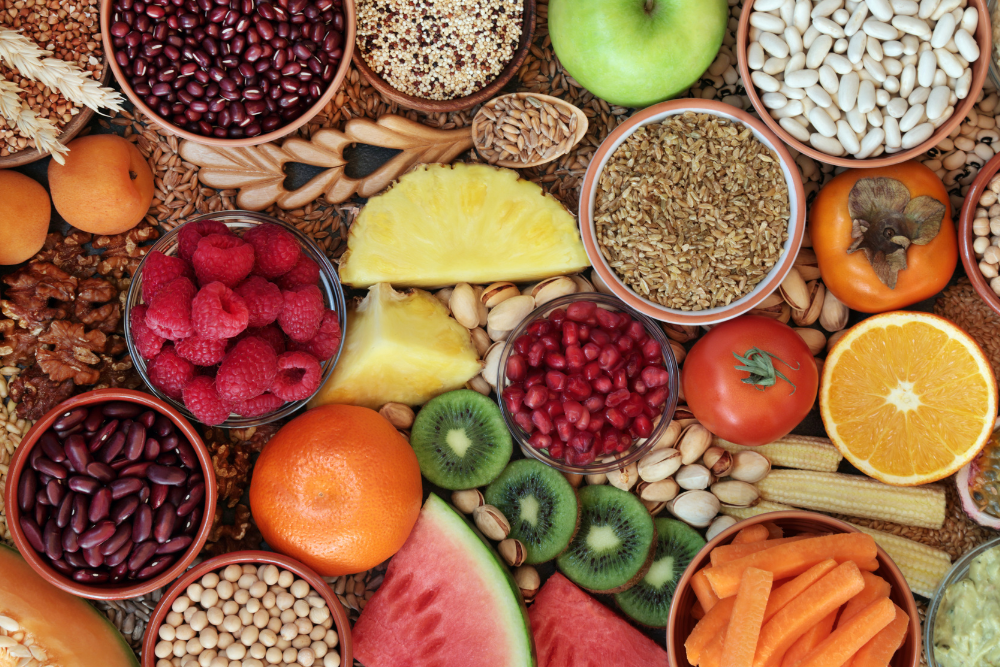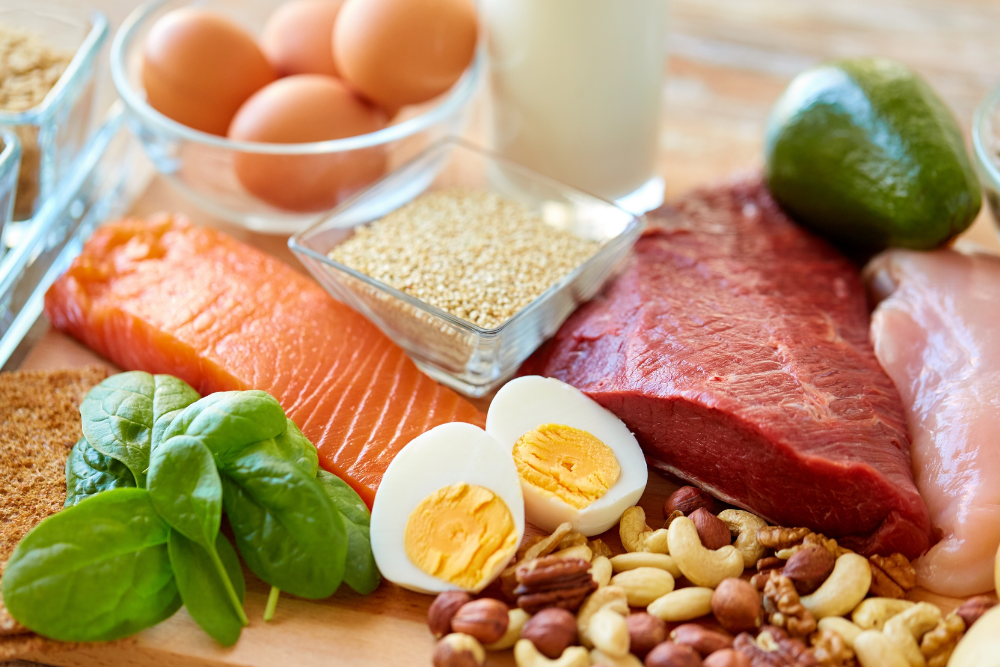Maintaining a healthy bladder is essential for overall well-being, yet urinary tract infections (UTIs) can challenge this balance. UTIs, characterised by inflammation and infection in the urinary tract, are commonly caused by bacteria entering the bladder. While medical treatment is often necessary to address UTIs, adopting preventive measures, such as dietary changes, can play a role in reducing the risk of recurrence.
In this article, we explore five key foods that should be avoided to promote a healthy bladder and prevent UTI symptoms. By understanding how certain dietary choices can impact bladder health, you can take proactive steps to protect yourself from the discomfort and inconvenience of urinary tract infections and prevent recurrent UTIs.
The Importance of UTI Prevention
Urinary tract infections are among the most common bacterial infections. While they are typically treatable with antibiotics, they can cause discomfort, inconvenience, and, in severe cases, complications such as kidney infections. Moreover, recurrent UTIs can lead to chronic bladder infections and diminished quality of life.
Prevention is key to managing UTIs effectively. By adopting preventive measures, individuals can reduce the risk of experiencing these painful and disruptive infections. Prevention alleviates the discomfort associated with UTIs and helps avoid the potential side effects and costs of repeated antibiotic use.
Furthermore, preventing UTIs contributes to overall urinary and bladder health. A healthy urinary tract promotes the proper functioning of the kidneys, bladder, and urethra, facilitating the efficient elimination of waste products from the body. By prioritising urinary tract infection (UTI) prevention, individuals can safeguard their bladder health and maintain optimal urinary function, enhancing their overall well-being.

Foods to Avoid for a Healthy Bladder
Certain foods can exacerbate bladder issues and should be avoided for maintaining a healthy bladder.
Highly Acidic Foods
Consuming highly acidic foods can irritate the bladder lining, potentially triggering inflammation and increasing susceptibility to UTIs. Examples of acidic foods to limit or avoid include acidic citrus fruits like oranges, lemons, and grapefruits, and tomatoes and tomato-based products such as sauces and juices. While these foods can provide valuable nutrients, moderation is vital for individuals prone to UTIs or experiencing bladder symptoms and sensitivity.
Spicy Foods
Spicy foods, particularly those containing chilli peppers or hot spices, can irritate the bladder and exacerbate UTI symptoms in susceptible individuals. The capsaicin found in spicy foods is known to irritate the urinary tract and may contribute to bladder irritation and inflammation, potentially increasing the risk of UTIs. Limiting or avoiding spicy dishes can help maintain bladder health and reduce the likelihood of urinary discomfort.
Artificial Sweeteners
Artificial sweeteners, commonly found in diet sodas, sugar-free snacks, and processed foods, have been associated with urinary issues and may worsen UTI symptoms. Certain artificial sweeteners, such as saccharin and aspartame, can disrupt the natural balance of bacteria in the urinary tract, potentially promoting bacterial overgrowth and infection. Opting for natural sweeteners like honey or maple syrup or reducing the overall intake of sweetened products can support bladder health and decrease symptoms of urinary tract infection.

Caffeinated Beverages
Caffeine is a diuretic that can increase urinary frequency and urgency, potentially irritating the bladder and exacerbating urinary symptoms. Regular consumption of caffeinated beverages like coffee, tea, and energy drinks may disrupt bladder function and contribute to urinary discomfort, making individuals more susceptible to UTIs. Limiting caffeine intake or opting for decaffeinated alternatives can help maintain bladder health and minimise the risk of UTIs.
Carbonated Drinks
Carbonated drinks, including sodas and sparkling water, can irritate the bladder and aggravate UTI symptoms in some individuals. The carbonation in these beverages can create additional pressure on the bladder, leading to increased urgency and discomfort. Furthermore, many carbonated drinks contain artificial sweeteners or high sugar levels, which can further disrupt urinary health. Choosing still water or herbal teas as hydrating alternatives can support bladder function and reduce the risk of UTIs and bladder infection.
By being mindful of these five foods to avoid, you can take proactive steps to promote bladder health and reduce the risk of UTIs. Incorporating a balanced diet rich in whole foods and staying hydrated with water can further support optimal urinary tract function and overall well-being.

Harmful Foods for UTI Prevention
While most people are aware of the benefits of cranberry juice for UTIs, limiting or avoiding certain foods is essential for preventing urinary tract infections and maintaining a healthy bladder. Highly acidic foods like citrus fruits and tomatoes, spicy dishes, and beverages containing artificial sweeteners, caffeine, or carbonation can all exacerbate urinary symptoms and increase susceptibility to UTIs. By being mindful of these harmful foods and making dietary adjustments, you can proactively support bladder health and reduce the risk of recurrent UTIs.
Tips for a Bladder-Friendly Diet
Maintaining a bladder-friendly diet involves more than just avoiding certain foods; it also requires incorporating choices that promote urinary tract health. Here are some tips to help cultivate a diet that supports a healthy bladder:
Stay Hydrated with Water
Adequate hydration is essential for flushing bacteria out of the urinary tract and preventing UTIs. Aim to drink plenty of water throughout the day to keep urine diluted and promote regular urination.
Include Foods Rich in Water Content
In addition to drinking water, incorporate hydrating foods such as cucumbers, watermelon, and celery into your diet. These foods have high water content and can contribute to overall hydration.
Opt for High-Fibre Foods
Constipation can contribute to bladder issues by putting pressure on the urinary tract. Include fibre-rich foods like fruits, vegetables, whole grains, and legumes in your diet to promote regular bowel movements and alleviate strain on the bladder.

Focus on Lean Proteins
Choose lean protein sources such as poultry, fish, tofu, and legumes over high-fat or processed meats. Excessive consumption of fatty or processed proteins can increase inflammation and potentially worsen urinary symptoms.
Incorporate Probiotic-Rich Foods
Probiotics help maintain a healthy balance of bacteria in the gut and urinary tract, which is essential for UTI prevention. Include probiotic-rich foods like yoghurt, kefir, sauerkraut, and kombucha in your diet to support urinary tract health.
Limit Sodium Intake
Excessive salt intake can lead to water retention and increased bladder pressure, potentially exacerbating urinary symptoms. Be mindful of your sodium intake and opt for low-sodium alternatives when possible.
By incorporating these tips into your diet, you can create a bladder-friendly eating plan that supports urinary tract health and reduces the risk of UTIs. Remember to listen to your body and adjust based on your needs and preferences.

Best Practices for UTI Prevention
Preventing urinary tract infections involves a multifaceted approach that goes beyond dietary considerations. Here are some best practices to help reduce the risk of UTIs:
Maintain Good Hygiene
Practise proper hygiene habits, including wiping from front to back after using the bathroom, urinating before and after sexual activity, and avoiding the use of irritating products such as douches and feminine sprays.
Stay Hydrated
Drink plenty of water daily to help flush bacteria out of the urinary tract. Aim for at least eight glasses of water daily, and adjust your intake based on factors like activity level and climate.
Practice Safe Sex
Use condoms to reduce the risk of sexually transmitted infections that can lead to UTIs. Additionally, urinate after sex to help flush out any bacteria that may have entered the urinary tract.
Avoid Holding Urine
Empty your bladder regularly and avoid delaying urination for extended periods. Holding urine can create a breeding ground for bacteria and increase the risk of UTIs.
Wear Breathable Clothing
Choose underwear made of breathable materials like cotton to allow air circulation and prevent moisture buildup in the genital area, which can contribute to bacterial growth.

Manage Chronic Health Conditions
If you have conditions such as diabetes or urinary incontinence, work with your healthcare provider to manage them effectively. Proper management of underlying health issues can help reduce the risk of UTIs.
Consider Probiotic Supplements
Probiotics can help maintain a healthy balance of bacteria in the gut and urinary tract, reducing the likelihood of UTIs. Talk to your healthcare provider about whether probiotic supplements may benefit you.
Seek Prompt Treatment
If you experience symptoms of a UTI, such as burning during urination, frequent urination, or cloudy urine, seek medical attention promptly. Prompt UTI treatment can help prevent the infection from worsening and reduce the risk of complications.
By incorporating these best practices into your routine, you can take proactive steps to prevent UTIs and maintain optimal urinary tract health. Remember that everyone’s needs and circumstances differ, so it’s essential to tailor your prevention strategies to suit your situation.





